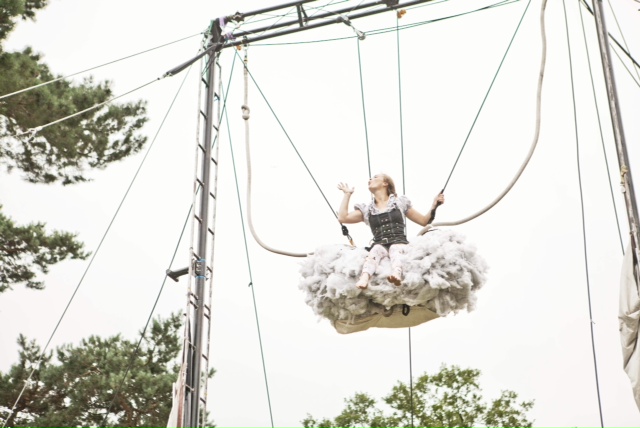The New Statesman says that the North is in need of ‘a cultural renewal’. Really? Helen Palmer, Co-Director of Creative Tourist and Palmer Squared, a consultancy specialising in the cultural and tourism sector, responds to this for Northern Soul.
I’ve absolutely no problem with nostalgia. Like everyone else I indulge in it at times, especially when it comes to the music, if not the fashion, of my youth. What I do have an issue with is rose-tinted nostalgia coupled with limited practical knowledge, presented as assertions of fact, and then used as a way to inform policy ideas in relation to ‘the North’, and in this case by a London-based think-tank.
I’m sure it’s genuinely well-meaning that in response to calls for more parity in funding of arts and culture – through the London vs. the rest of the country debate, and the general North vs. South shenanigans around the Northern Powerhouse as a political definition post George Osborne – Caroline Julian from ResPublica suggested in an article in the New Statesman last week that what the North needs is a ‘Northern Cultural Tsar’.
I’ve enjoyed 25 years working in the arts, culture, heritage and tourism sectors, based in Manchester but also working across the UK, even in ‘the South’. Suggesting that Manchester’s halcyon cultural period was the ‘good old Madchester days’, where cultural identity, through music, was embedded in the very heart of the city and its people is a somewhat lazy, revisionist approach to the city’s history. 
Over the past 20 years, Manchester and nearby Salford Quays have invested in the development of new cultural institutions including The Lowry, Bridgewater Hall, IWM North, People’s History Museum, Castlefield Gallery and HOME , as well as the redevelopment of countless other cultural venues including The Whitworth, Central Library, Manchester Art Gallery, Royal Northern College of Music and Chetham’s School of Music. The list goes on and on, all driven by strong civic leadership and partnerships. It’s not just about the investment in the upcoming £110 million Factory secured through the Northern Powerhouse agenda, or building on the global impact of Manchester International Festival, or other standout festivals like FutureEverything now expanding its international portfolio to Singapore.
 This cultural renaissance is reflected across the Northern post-industrial cities from Liverpool, spurred on by its 2008 European Capital of Culture status, through to NewcastleGateshead investing in a 10-year cultural strategy when it didn’t win, Wakefield’s Sculpture Triangle and now Hull, the UK’s City of Culture next year. Who would have thought 20 years ago that Newcastle and Gateshead would talk about their cities as a joined up cultural offer?
This cultural renaissance is reflected across the Northern post-industrial cities from Liverpool, spurred on by its 2008 European Capital of Culture status, through to NewcastleGateshead investing in a 10-year cultural strategy when it didn’t win, Wakefield’s Sculpture Triangle and now Hull, the UK’s City of Culture next year. Who would have thought 20 years ago that Newcastle and Gateshead would talk about their cities as a joined up cultural offer?
Now I know that cultural identity is not created by the establishment of cultural venues or even events, but nor are we ever going back to a time when cultural identity was a reflection of manufacturing industries or a particular music tribe (they never really go away anyway, as anyone at recent Stone Roses concerts can testify). It’s right that the mono-cultures surrounding single-industry towns have been diminished. But what is there now? Cultural identity today is composed of a myriad of different communities, cultures and transient influences. Arguably they always were.
There is no doubt that the Government’s policy of austerity – and the resulting cuts to local authority funding – continues to have a significant detrimental impact on arts and culture at a local level. We’ve already seen cultural organisations and venues closing across the country (not just in the North). However, post the financial crash and those subsequent eviscerating cuts, cultural entrepreneurship and creative sector-crossing partnerships have come to the fore in new and dynamic ways. It might be hard to see that happening across the North from central London, but they represent the new grass roots, bottom up, ‘of place’ cultural energy of the towns and cities where they work.
And let’s remember that the track record of government-appointed Tsars is not exactly great – often because the brief is hopelessly unrealistic and designed for a news headline. Just look up the track record of these appointments – Natasha Devon (mental health), Lord Sugar (enterprise), Emma Harrison (families), Mary Portas (high street retail), James Caan (social mobility), [Baroness] Karren Brady (small business)…and Sir Philip Green (erm, efficiency). Labour started the trend, but successive Conservative-led governments since 2010 have clearly got carried away (or perhaps run out of ideas), appointing more than 100 to date. 
This very visible ‘hand of government’, put in place to say what’s best for the independent-minded North and its equally outspoken and vibrant cultural sector, is exactly not what is needed, or even asked for. Partnership yes, challenge yes, patronage no. Funding parity with London? Yes please (or at least much less disparity), but with a recognition that how that funding might be used could be something that the cultural sector of the North might be able to figure out themselves, working with the kind of people it already does…locally, regionally, nationally and globally.
By Helen Palmer
Helen Palmer is Co-Director of Creative Tourist and Palmer Squared
Main image: Liz Foster Design











